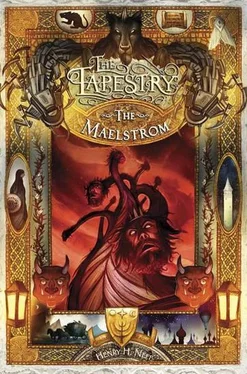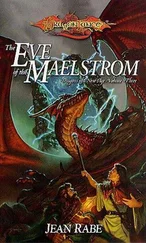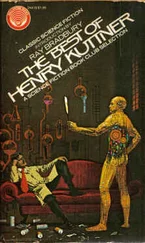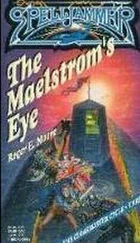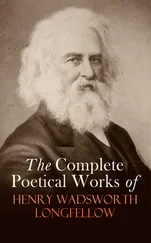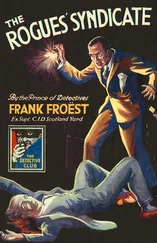“I’m imagining this,” Max murmured, watching the Demon’s image grow translucent and flicker in the lantern light. “You’re not here—you’re skulking, lurking, hiding from Bram. You’re just some mischievous spirit, some watcher in the woods.”
The Demon gave a knowing smile. “I’m the watcher in all the woods,” he replied softly. “And I am here. Not in the flesh, alas, but then I can’t risk getting close to that awful blade. What a crime to craft such a weapon. You will never be free of it. You’ve made a bargain with the Morrígan, my boy, and blood is the only coin she takes.”
Frowning at the gae bolga , the Demon’s expression became thoughtful, almost melancholy.
“Dismiss your silly thoughts of violence,” he said. “When I’m in this form, we cannot harm one another. I’ve merely come to talk with you, Max, to appeal to your good senses and save you from the path you’re on.”
“Of course,” said Max scornfully. “You’re here to save me.”
“Yes, I am,” replied Astaroth. He gazed about the churchyard and the falling snow and sighed. “You and David and all the rest have done such foolish things,” he lamented. “It tries even my patience. I resurrect this beautiful world, give you a veritable Eden scrubbed clean of mankind’s mistakes, and you’re determined to throw it all away.”
Max’s face darkened. “This is your Eden? A world of war and death and fear?”
“Tut-tut,” Astaroth chided. “Where is your vision? I suppose it’s not entirely your fault—it’s the human in you. But try to have some perspective. We’re merely baby steps into a grand project, but already the old cities and governments and even memories are gone, cleared away so that a new and better world can take their place. Will death and heartbreak accompany such massive upheaval? Of course they will. When a farmer tills his fields, the ants must scatter or perish. But very soon, new life is created. The land and the ants are better for it.”
“Tell that to everyone who lost their families and their freedom.”
Astaroth sighed. He glided past to examine the headstones, stooping to read aloud several names of the deceased and how long each had lived. The Demon raised a slender eyebrow.
“Has it ever occurred to you that humans are dreadful at governing themselves?” he said. “Their lives are short but their appetites are large. It’s an almost comic recipe for greed and discontent. Most care nothing for future generations of their own kind, much less other beings and creatures. The rare specimens who strive to live in peaceful balance are quickly exploited or conquered by those who do not. They are punished for their virtue while the rest of the species cultivates and rewards its very worst traits. Moral man and immoral society, indeed!”
Chuckling, Astaroth shook his head.
“If humans are such a cancer, why not simply destroy them?” Max mused. “You have the Book of Thoth. You could strike humans from the record, make everyone fade away like everything else you’ve changed.”
With a shrug, the Demon rose and turned from the headstone.
“It is tempting,” he confessed. “It would be dishonest to pretend I have not weighed such a measure—a chance to wipe the slate clean and begin things anew, refashion the species and purge it of its lesser qualities. But I have not yet given up hope for humans. Within them exist the divine and the profane. Did you know that Isaac Newton published his Principia in the very year a sailor slaughtered the last dodo bird?”
“What’s your point?”
“My point is this. The genius who produced Principia is worth saving; the lout who bludgeoned the last of a helpless species is not. Such baffling extremes exist within mankind. Forgive me, Max, but such extremes exist within you . It’s why you intrigue me. And while it is periodically tempting to obliterate humans, I entertain the hope that they can be taught to nurture and embrace their better nature. It won’t happen overnight, but I’m optimistic that within a few centuries, we might see real progress. Perhaps we’ll see the same with you.”
“So we’re all just living in your little garden,” Max scoffed. “Some pruning here, some planting there, and wondrous things will grow.”
“You say it like it’s a bad thing,” teased the Demon.
“People want to make decisions for themselves.”
“Oh, I know they do,” the Demon purred. “They’re just not any good at it. How could they be when they lack the necessary vision, wisdom, or patience? You curse my name, but the painful truth is that mankind was already teetering on self-destruction. Would you prefer a nuclear holocaust, laboratory plague, or technological singularity to my ascendancy? You shed tears for the fallen, but my intervention has saved humanity. A benevolent dictator is best, as Plato himself realized.”
“If you’re so wise and benevolent, why did the demons turn against you?”
“Because they’re as greedy and shortsighted as the humans. I believed that Prusias and others would be content with what I’d given them. I was mistaken. I shall not make such an error again; Prusias will learn the error of his ways.”
“What are you waiting for?” Max laughed. “His armies are rampaging all over Blys. Go punish him. Or have you grown too weak?”
The Demon’s smile waned. “Let us understand one another. This is not about strength or my capacity to impose my will. I can destroy almost anything upon this planet the moment I choose. Shall I incinerate the earth’s atmosphere? What if I melt down the ice caps or turn every drop of water into dust? The Book of Thoth gives me that power. If my ambition was merely to crush my enemies and rule as a tyrant, I could do so. That is Prusias’s aim, not mine. Any brute can become a tyrant if he stumbles into enough power. That holds little interest for me.”
“So what does interest you?”
The Demon gazed up at the stars. “Creation,” he murmured. “To bring forth something whole and lasting from something diseased and broken. To design and build something that has never existed. I am older than you imagine, Max McDaniels, and I have seen countless worlds. None rival this for its beauty or sheer possibilities. In a few thousand years—a mere heartbeat of the cosmos—this could be paradise.”
“Not if Prusias destroys it,” remarked Max. “Why don’t you stop him?”
“There’s elegance in economy,” replied Astaroth. “Why should I expend the energy to humble Prusias when he will do the job for me? Even if he conquers the other kingdoms and little Rowan, Prusias and the Workshop have broken Nature’s laws and birthed horrors that will inevitably spiral out of control. When that happens, whatever survivors remain will beg for my return. Really, I should be grateful—nothing could illustrate my value more than greedy, savage Prusias. Does the prospect of his invasion frighten you?”
“I’d rather fight Prusias than bow to you.”
“Touché,” replied the Demon. “That’s the very choice man has always faced—the king on the hill or the wolf at the door. A just king will protect you from the wolf, but he demands loyalty and service. You can choose to face the wolf alone, of course, but that is a risky proposition. And we’re not even talking about a wolf, are we? We’re talking about a Great Red Dragon.…” The Demon gave him a sharp look. “When Prusias comes, do you think Elias Bram will save you?”
When Max did not reply, Astaroth laughed soundlessly.
“Your silence speaks volumes. Already you sense what I know. The Archmage cares little for Rowan or its people. His real concern is hunting me and achieving vengeance. He may cite grand causes and ideology, but it’s really just his ego. It always has been. Look no further than how Elias won the hand of the lovely Brigit. Do you know that laughable myth?”
Читать дальше
